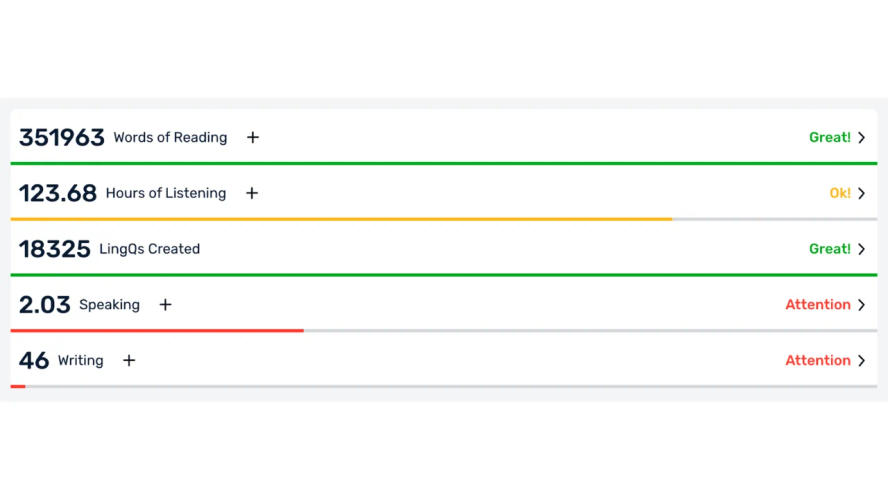When it comes to learning a language on your own, it’s fundamental that can set you take charge of your own learning. It doesn’t matter whether you’re studying in a classroom or learning a language entirely on your own. Ultimately, success in language learning is a personal journey, and it starts with embracing an independent mindset. Here, we’ll break down the steps and strategies that can help you develop your autonomy as a language learner and reach your goals.
1. Embrace the methods and routines that work best for you
To successfully learn a language on your own, it’s important to get to know yourself as a learner. The journey to fluency is in your hands. In other words, the length of your study sessions, the materials you use, and the grammatical explanations that you seek should all be tailored to your needs. Although guidance from a teacher is welcome, you ultimately have to decide what type of set-up and engagement with the target language works best for you.
Successful, independent language learners have three elements:
- A positive, patient attitude
- Consistent and sufficient exposure to the language
- The ability to notice patterns and nuances in the language
Given that your language-learning method includes these three elements, take the initiative to align your routines and materials to your preferences.

2. Invest time in finding quality language content for independent learners
What’s a key advantage of learning a language on your own? Well, you’re in control of which tools and resources you use. It’s worth it to invest time in finding materials that support your goals. Take the time to discover which materials support you most effectively as an independent learner. For example, I might like to have a concise, straightforward grammar guide on hand for quick explanations of a language’s structure. I personally like Dover’s Essential Grammar series because they offer an easy reference and refrain from overwhelming me with exercises.
To learn a language on your own, you will need ample amounts of engaging, level-appropriate content. A good variety of content keeps learning fresh and engaging. If you’re studying Chinese, for instance, look for Chinese readers with glossaries. If you’re tackling Polish, I recommend Piotr’s materials on RealPolish.pl. Nowadays, I find the mini-stories available on LingQ highly effective, as they’re designed to offer repetitive, high-frequency vocabulary in multiple perspectives. LingQ’s mini-stories not only reinforce my understanding, but also assist in my ability to notice patterns in the language.

3. Establish Ways to Track Your Progress
Language learning, especially on your own, can sometimes feel like a foggy, never-ending journey. Keep yourself motivated with specific short-term goals to measure your progress. At LingQ, for example, you can track goals like the number of words saved, read, or learned. These small milestones can keep you motivated during tough times, showing the benefits of consistent effort and exposure.

During phases of doubt or frustration, these concrete achievements can reassure you that you’re moving forward. Remember, as long as you continue investing time and remain engaged with the language, you’re making progress.
Even though self-guided learning is effective, it does not need to be a solitary process. You can gauge your progress by regularly interacting with native speakers on italki or finding a language partner on LingQ. This can provide essential confidence boosts and insight towards your speaking skills. Afterwards, continue to learn on your own by reviewing feedback from your tutor or frequent errors that appear in your writing.

For more information on useful vocabulary and metrics for language learning progress, check out my post on proficiency levels and defining fluency.
4. Challenge Yourself to Engage with Authentic Material
As you become more comfortable, gradually transition from material designed for language learners to authentic content that matches your interests. This stage marks a shift in your language learning. Suddenly, you’re no longer just trying to learn a language on your own, but also explore topics that intrigue you in general. Dive into history, non-fiction, or podcasts that you’d want to engage with in any language.
You’ll find that real-world materials not only improve fluency but also make language learning on your own more enjoyable. When you’re captivated by the content, your focus naturally shifts from “learning” the language to absorbing it as a means of understanding a subject you care about.
Conclusion: Successfully learning a language on your own
In language learning, the journey is yours to design. By fostering an independent mindset, investing in meaningful resources, seeking diverse content, and setting measurable goals, you’ll build the skills and confidence to succeed on your own terms. If you’re studying in a classroom, remember that what you do outside the classroom is equally crucial. Approach your learning with curiosity, patience, and commitment, and don’t be afraid to connect with others when you need support.
Did you enjoy reading this post? I also speak about this topic on my YouTube channel. For more insight on what I personally consider to be an effective language learning method, check out my my post “The Most Effective Language Learning Method”.








comments on “How to Learn a Language on Your Own”